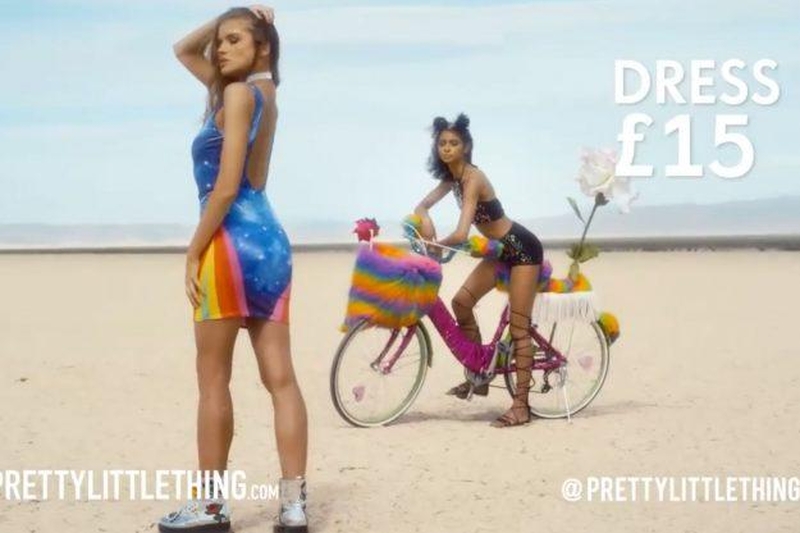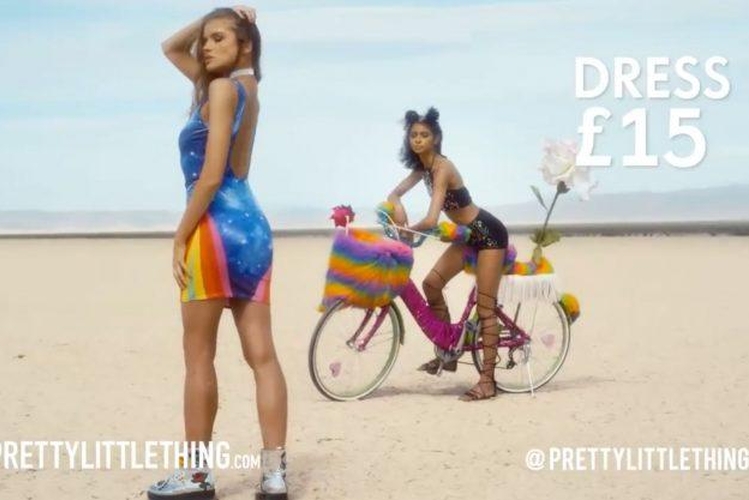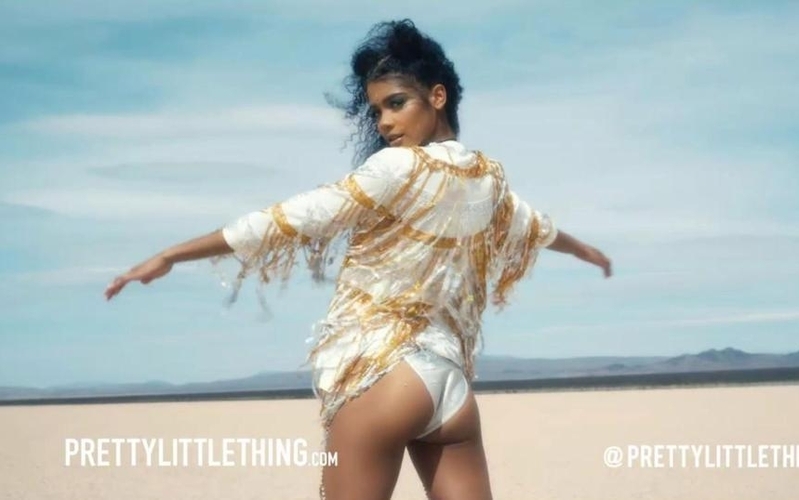The Manchester-based retailer's advert was accused of being 'sexually suggestive'
Beauty and youth have always walked hand-in-hand on any fashion catwalk and the industry’s use of young, pre-pubescent-looking women is nothing new. Despite the recent move towards curvier, more ‘real’ representations of women fuelled by the body positivity movement, extremely slender models who look remarkably younger than they are is still more commonplace.
A recent casting decision has caused controversy for Manchester-based retailer PrettyLittleThing, whose TV advertisement has been banned for using models who appeared to be underage and in sexually suggestive clothes and poses.
The advertisement, which aired on ITVBe in April during Dinner Date, sees two young women model skimpy festival-themed outfits from PrettyLittleThing’s summer collection against the backdrop of a desert plain – a move that reflects the daring outfits modelled by A-listers at the American desert festival Coachella, also in April. However, it was the youthful appearance of one of the models that triggered a viewer to complain to the Advertising Standards Authority (ASA), accusing the ad of being irresponsible for portraying models who looked like children in a sexualised manner.
Concern was also raised over the models’ juvenile behaviour in the advert
In defence of the advertisement, 21 Three Clothing, which trades as PrettyLittleThing, said the models were 23 and 24 years old and that the styles of clothing worn in the advertisement were on-trend designs for the summer festival season.* Ad clearance agency Clearcast supported these comments, claiming that its viewing panel felt that the tone of the ad was in line with the festival spirit of the products and that the models featured were neither childlike nor indecent or overly sexualised.
Despite this, the ASA upheld the viewer’s complaint, saying that one model did have a “very youthful appearance”, some of the outfits were tight fitting or revealing, and some poses drew attention to the models’ chests and bottoms.

Concern was also raised over the models’ juvenile behaviour in the adverts – the girls are seen singing and twirling whilst posing with umbrellas, a phone box and a bright pink bicycle.
As a result, the ASA determined that the combination of the models’ poses, their expressions and their outfits meant that PrettyLittleThing’s advertisement was sexually suggestive.
“We considered that the ad portrayed a model who appeared to be under sixteen in a manner that was sexually suggestive,” the ASA said. “We therefore concluded that the ad was irresponsible and in breach of the code.”
They added: “We told Prettylittlething.com to ensure that future ads did not sexualise those who appeared to be children.”
PrettyLittleThing, who were this year crowned the fastest growing fashion retailer, have yet to comment on the ASA’s decision.
Although both girls featured were adults, the ban highlights concerns on the wider topic of the use of underage models for advertising campaigns. Supermodels Kate Moss and Gisele Bundchen were both discovered at the tender ages of fourteen, whilst supermodel offspring Kaia Gerber, who is daughter to Cindy Crawford and model-turned-businessman Rande Gerber, starred in her first fashion campaign for Chrome Hearts at the age of fourteen, wearing a long black trench coat with a thigh-high split, before modelling for Vera Wang and Hanes x Karla T-shirts at just fifteen.
With younger-looking girls being used to promote adult fashion brands, do tighter guidelines need to be in place for advertising standards?
Have your say by tweeting us at @bdyconfidential












